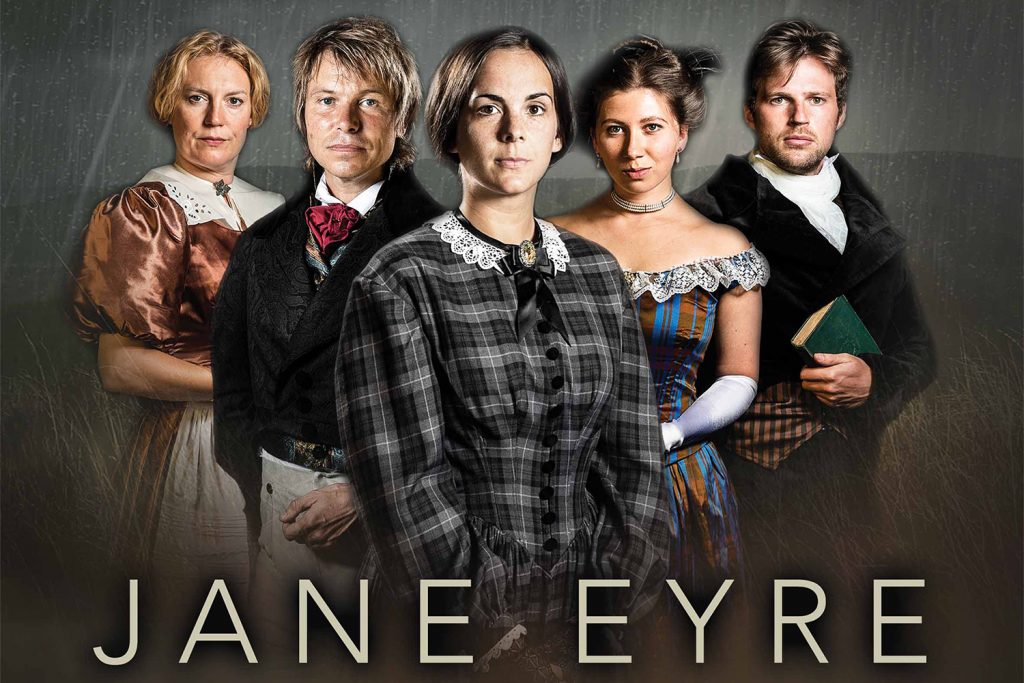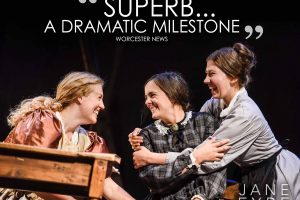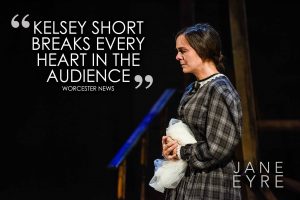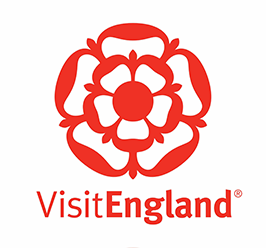Ahead of Blackeyed Theatre’s production of Jane Eyre at The Atkinson (8 & 9 Nov), we talk to writer Nick Lane about his approach to adapting the gothic masterpiece for the stage.
How did you approach adapting Jane Eyre?
The facetious answer would be, “very, very carefully,” but we’ll get into that in other questions. People think writing is a singular process. It’s not entirely true. It’s collaborative. The vision has to be the writer’s, you know, and the nuts and bolts of sitting down and writing it; that’s obviously all you, but beforehand – while you’re forming your ideas – it’s always good to talk things through, so I approached this adaptation by discussing the book with Adrian McDougall, the Artistic Director of Blackeyed Theatre. That’s always good because not only is he a really great sounding board with his artistic director hat on, he’s also very clear when wearing his producer hat on what the company’s needs are – you know, how many actors can I have to tell this story; will they need to be physical performers, actormusicians, that kind of thing. And from that you come up with a concept; you come up with a way you want to tell the story and a how and a why. Then it’s just about making sure your adaptation is respectful to the writer and really honours their vision. That doesn’t mean to say that things can’t be different – an adaptation is simply that; it’s not the book. That’s an important distinction to make. I think sometimes it can be healthy and interesting to take a theme that the author was keen on and explore that within the context of the adaptation. I saw a wonderful adaptation of 1984 a few years ago produced by a company called Headlong. It deviated hugely from the novel in parts but retained the very essence of Orwell, and particularly his message. And that’s key, because you do have to retain the vision of the author – especially with something like Jane Eyre because it is a book that means so much to a hell of a lot of people!
For you, what are the key challenges?
I’d have to say, number one was always going to be getting Jane right. She’s such an important character in literature – at that time in history, to create a female character able to shape her own destiny; to choose, to risk everything to follow her own soul… she’s absolutely iconic. Of course it’s a wonderful novel for other reasons too, but the eponymous heroine… I think she’s been an inspiration to a lot of women – continues to be, of course. And being a bloke, I think I felt some pressure. Maybe it wasn’t there; maybe I was putting it on myself. I just didn’t want to let anyone down. I have a friend who reads the book every year; she’s a smart woman and I consulted with her a lot; so I’ve at least brought her Jane to the stage! And to be honest, a lot of the heavy lifting on that was done by Charlotte Brontë – once you distil the dialogue and craft it for the stage… what she’s put on the page is a gift. After that; it’s about getting that connection with Rochester that’s so clear in the book; getting that on stage. Making it work with the number of actors we have – five – and telling the story clearly and concisely. The book is so rich and has such depth but I had to try and get it all into one evening’s entertainment. That was a big challenge.
How do you see main characters and how do you help bring them to life?
It’s interesting; I had a conversation about this with another writer not that long ago – we’re both currently in the process of adapting the same book for different Christmas productions and compared notes on our approaches. She’s been really bold; she’s telling the story from the point of view of other characters not mentioned in the book; ones she’s invented, whereas I’m keen to work within the original writer’s world. I think you have to understand them, or try to, and put yourself in their place, if you like. In that regard Rochester is just as complex as Jane. I mean of course he is. His journey is, from a certain point of view, one of Jane Eyre Media Pack – Page 18 of 26 simple redemption – ‘man loses everything but finds his soul’ kind of thing (or at least his true love). Look deeper and he’s already lost; he’s brash and bluff, dry and funny but he’s in pain from the outset, and the key is not to put that on the page; because Charlotte doesn’t. She wants you to intuit that – if that’s how you see Rochester; and if you don’t that’s fine too. Jane and Rochester are mirrors of one another in a lot of ways, and that helped I think. Again; Charlotte Brontë to the rescue!
In what ways have you diverged from the source material?
I don’t think I have too much. As I mentioned earlier the narrative is compressed, distilled. I’ve worked on the main tracks of our protagonist; tried to pick out the key narrative beats without it becoming a “this… then this! Then this!” rollercoaster ride. The book’s far subtler than that and far more delicate. I confess I do find the book to be rather haunting and, in parts, downright spooky, so there’s perhaps more of a nod to that – I’ve not tried to turn it into a Gothic horror or anything; it’s still the book you all love! I hope! Oh; and one character – shall I name them? I shan’t name them because I don’t want to spoil it – I repurposed, if you like. There’s a thing in the book regarding Rochester’s secret that always bothered me, so I hate to use the word “fixed” because there’s no way I’d claim to have fixed a literary masterpiece – but it won’t ruin anything at all. I promise!
Why do you think Jane Eyre is so enduring?
It’s everything I’ve said already; I think… a woman out of her time who endures incredible hardships but manages through sheer strength of will to ascend to a place where she can define her own happiness; not have it defined for her by society. That’s it for me anyway. It’s going to be different for everybody to be honest; there’s so much in it. That’s probably the key actually; there’s so much in it that people can draw from. There’s satire, there’s socioeconomic commentary, there’s this beautiful ache of a love story; these two characters that find each other. But for me, Jane’s an underdog; all her life she’s underestimated or treated with resentment and contempt, yet she endures it all and prevails. And who doesn’t love an underdog story? I love an underdog story; I’m a Doncaster Rovers fan – we’re always underdogs!
What should audiences expect?
To be entertained; to have a quality evening at the theatre – that’s what I want; that’s what we all want ultimately. That’s why we do it. I’ve tried my best to bring this timeless book to the stage; these wonderful characters to life. Adrian has assembled a terrific cast; the music I’ve heard already is gorgeous… I’d like to think as a company we can transport an audience into that life; into that world. If they’ve read the book, the audience might go away and want to pick it up again. And if they haven’t, then it’d be lovely to think they might go away wanting to read it, you know. I’ll feel we’ve all done our jobs if we achieve all that.
Showtimes
Friday 8 Nov: 7:30pm
Saturday 9 Nov: 2pm & 7:30pm
Running Time: 2 hrs 40 mins (with interval), Age 11+
Group Booking: £12 groups of 10+ (evening performances only)
Schools & Colleges: £10 groups 10+. Download an Education Pack.
Posted on 30 October 2019 under General news












